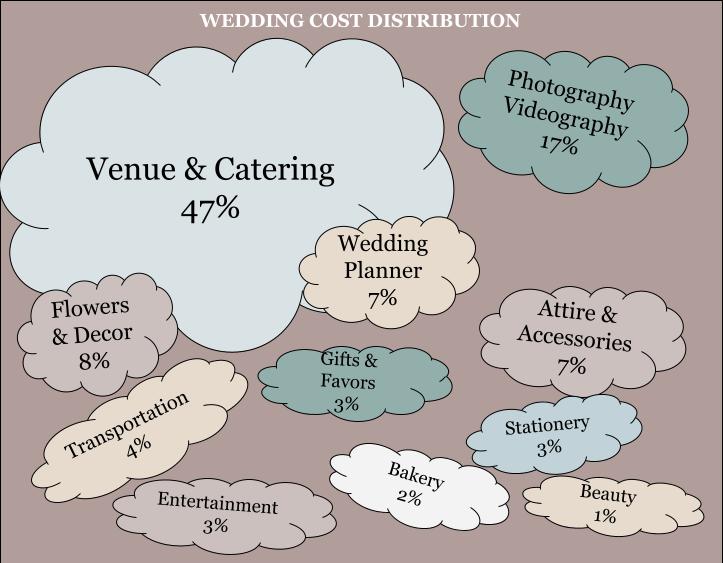By Terry Meadows
6-minute read
Have you and your partner found yourselves caught between the excitement of planning your dream wedding and the daunting task of navigating the delicate conversation about financing it with your parents?
Amidst the excitement of envisioning your perfect day, you sit across from your parents, anticipation palpable in the air. As discussions unfold, the focus shifts unexpectedly to the realm of finances, prompting a flurry of questions: How much can we realistically afford? What contributions are our parents willing to make? In that moment, the thrill of wedding planning momentarily gives way to a wave of uncertainty.
At Zion Springs, with over 15 years of experience guiding couples through every step of the process, we've witnessed firsthand the importance of open communication and informed decision-making, especially when it comes to finances. Through our dedication to educating couples on their wedding journey, we've curated a wealth of knowledge to help you navigate the intricacies of discussing wedding finances with your parents.
So, whether you're just starting to broach the subject or you're in the midst of navigating potential financial boundaries, we offer practical advice on creating a realistic budget, planning the conversation with your parents, and fostering effective communication to ensure a harmonious wedding planning experience for all involved.
Navigating Wedding Finances and Understanding Your Parents' Perspective
Navigating the delicate terrain of discussing wedding finances with your parents requires a thoughtful understanding of both their perspective and your own financial situation. This requires empathy and clarity as you approach these crucial conversations.
Understand Your Parents' Perspective
Your parents, like you, might have envisioned your wedding day for years. Their hopes and expectations for this milestone event may be deeply ingrained, shaped by cultural traditions, personal experiences, and financial considerations. Take a moment to consider their perspective. Are they concerned about the financial strain? Do they have specific cultural or familial expectations? For instance, if your parents come from a culture where lavish weddings are the norm, they may feel pressure to adhere to certain traditions, even if it stretches their budget. Acknowledging and respecting their cultural values while also expressing your own priorities can lead to a more constructive dialogue.
Some parents may also feel unprepared or financially unable to support their children's wedding, adding another layer of complexity to the conversation. By empathizing with their viewpoint, you can better anticipate their concerns and approach the discussion with sensitivity.
Know Your Own Financial Situation
Equally important is a clear understanding of your own financial landscape. Sit down with your partner and honestly assess your resources. Consider your savings, income, and any potential contributions from other family members. Establishing a realistic budget based on your financial capacity lays the groundwork for fruitful discussions with your parents.
Moreover, recognize that both partners play a role in contributing to the wedding budget. Whether you're splitting expenses evenly or allocating based on individual financial situations, open communication, and mutual understanding are key. Remember, this is a journey you're embarking on together, and transparency from the outset sets the stage for a harmonious planning process.
As you understand your parents' perspective and assess your own financial situation, you’ll want to explore strategies for planning the conversation with your parents in the next section.

Strategic Approaches to Discussing Wedding Finances
Preparing to discuss wedding finances with your parents requires careful consideration and strategic planning. By choosing the right time and place, as well as adequately preparing for the discussion, you can set the stage for a productive and respectful conversation.
Choose the Right Time and Place
Selecting an appropriate environment for the conversation is paramount. Opt for a setting that is conducive to open dialogue and free from distractions or stressors. Consider scheduling a time when everyone involved is relaxed and receptive, allowing for focused attention and meaningful communication.
For example, consider arranging a quiet moment after dinner or a leisurely weekend afternoon instead of broaching the topic during a hectic family gathering. This allows for undivided attention and minimizes external pressures that may detract from the conversation's effectiveness.
Prepare for the Discussion
Preparation is key to navigating sensitive topics with grace and confidence. Before engaging in the discussion, take time to gather relevant information and do your research. Anticipate potential questions or concerns that may arise and arm yourself with thoughtful responses. You can address any uncertainties with clarity and poise by approaching the conversation with a well-informed perspective.
Consider compiling a list of key points or talking topics to guide the conversation and ensure all essential aspects are covered. Additionally, practice active listening and empathy, allowing space for your parents to express their thoughts and concerns openly. By preparing for the discussion in advance, you can foster a sense of mutual understanding and respect.
Now that you've laid the groundwork for open communication and understanding with your parents, let's shift to creating a realistic wedding budget.

Creating a Realistic Wedding Budget
Crafting a realistic wedding budget lays the groundwork for a memorable celebration that aligns with your vision while staying within financial means. You can ensure that your wedding day reflects your dreams without breaking the bank by evaluating your priorities, estimating total costs, and planning for unexpected expenses.
Evaluate Your Wedding Priorities
Begin by discussing your wedding priorities with your partner. What aspects of the day are most meaningful to you both? Whether it's a stunning venue, exquisite cuisine, or captivating entertainment, identifying your priorities will help you allocate funds where they matter most.
For example, if you both value creating an intimate atmosphere where guests feel welcomed and cherished, prioritizing personalized touches like handwritten notes or bespoke favors can enhance the overall experience without significant cost.
Calculate Total Costs
Estimating the total costs of your wedding requires careful consideration of various elements. Each component contributes to the overall budget, from venue rental and catering to attire and decorations. Utilize a budget worksheet or checklist to itemize expenses and ensure comprehensive coverage of all aspects of your celebration.
For instance, allocating a portion of your budget to each category—such as 47% for venue and catering, 7% for attire, 3% for entertainment, and so forth—can provide a clear framework for financial planning and expenditure tracking.

Contingency Planning
In addition to budgeting for planned expenses, it's important to set aside a contingency fund for unexpected costs that may arise during the planning process. From last-minute vendor changes to unforeseen weather-related challenges, having a buffer ensures financial flexibility and peace of mind.
Consider allocating 10% of your total budget as a contingency fund to account for any unforeseen expenses. This reserve can help mitigate stress and uncertainty, allowing you to navigate challenges with confidence and resilience.
Now that you've evaluated your priorities, estimated total costs, and planned-for contingencies, let's explore practical strategies for navigating financial boundaries with your parents.
Mastering Wedding Finance Communication
Effective communication is the cornerstone of successful wedding finance discussions. By cultivating honesty, transparency, and active listening, couples can navigate these conversations with understanding and respect.
Be Honest and Transparent
Open communication about the budget is paramount. Be honest with your parents about your financial situation and share your vision for the wedding day. By setting realistic expectations from the outset, you can foster trust and collaboration throughout the planning process.
For example, if you're working with a limited budget, communicate your priorities and explore creative alternatives together. Honesty about financial constraints can lead to innovative solutions and a more meaningful celebration.
Active Listening
Listening to your parents' perspective on the budget is equally important. Take the time to understand their concerns, preferences, and financial constraints. Practice active listening by asking clarifying questions, summarizing their points, and validating their feelings.
Consider their input with an open mind and be receptive to compromise. Demonstrating empathy and understanding can strengthen your relationship with your parents and find common ground on budget-related decisions.
Let's now move to strategies for handling emotional responses and finding common ground in the following section.

Emotional Responses to Wedding Finance Discussions
Emotions can run high when discussing wedding finances, but with the right approach, you can navigate disagreements and find common ground.
Handling Disagreements
When disagreements arise about the budget, it's essential to approach the conversation with patience and respect. Listen actively to your parents' concerns and express your own perspective calmly. Remember, it's okay to disagree, but maintaining a respectful tone is key to finding a resolution. For instance, if there's disagreement about allocating funds to a particular aspect of the wedding, discuss alternative solutions that address both parties' concerns.
Finding Common Ground
Finding common ground is essential for reaching agreements on budget decisions. Focus on shared goals and priorities to guide your discussions. Look for opportunities to compromise and collaborate on budget allocations. For example, if you and your parents both prioritize creating a memorable guest experience, explore ways to allocate funds to enhance hospitality while staying within budget constraints.
As you tackle emotional responses and collaborate on budget decisions, let's now summarize the key points and chart a course for the next steps in your wedding planning journey.
Navigating Wedding Finances: A Guide to Success
Wedding Finances: A Guide to Success
As you start planning your dream wedding, the topic of financing may initially seem daunting. However, mastering the art of communication, understanding financial boundaries, and navigating emotional responses can ensure a smooth and enjoyable planning process.
In this article, we've explored essential strategies for discussing wedding finances with your parents. Whether it's setting realistic expectations, exploring different contribution options, handling disagreements, or finding common ground, each step is crucial in achieving your wedding vision while staying within budget constraints. At Zion Springs, an all-inclusive wedding venue committed to simplifying the planning process, we understand the importance of these discussions and are here to support you every step of the way.
Now that you've acquired valuable insights and practical advice continue your wedding planning education by exploring more articles on our Advice and Answers page. Discover expert tips on topics ranging from choosing the perfect wedding venue to debunking common myths about wedding planning.







